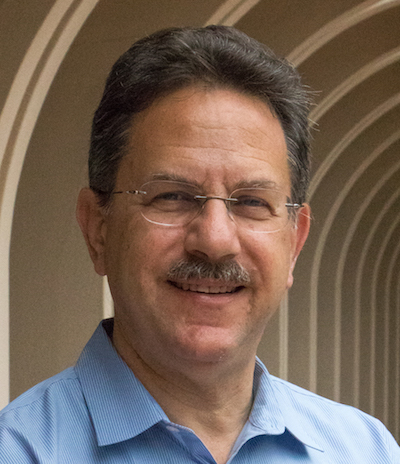Arthur D. Lander, M.D., Ph.D.
Arthur D. Lander, M.D., Ph.D.
Donald Bren Professor of Developmental & Cell Biology
Biography
Dr. Lander received his B.S. degree in Molecular Biophysics and Biochemistry from Yale in 1979, followed by an M.D. degree and a Ph.D. in neuroscience from the University of California, San Francisco in 1985. After postdoctoral research in neurobiology at Columbia University, he joined the faculty of the Massachusetts Institute of Technology in 1987, in the Departments of Brain & Cognitive Sciences and Biology. He later moved to UC Irvine, where he founded and currently directs the Center for Complex Biological Systems, which fosters interdisciplinary research, training, and outreach at the interface between biology and the physical, computational, and engineering sciences. He also co- directs UCI’s Cancer Systems Biology Center, and is an Associate Director of the NSF- Simons Center for Multi-scale Cell Fate Research.
Dr. Lander’s honors include a David and Lucille Packard Fellowship for Science and Engineering; an NIH-Javits Neuroscience Investigator Award; and a RARE Champion of Hope in Science Award, as well as election to membership in the American Society for Clinical Investigation and fellowship in the American Association for the Advance of Science. He is a member of the Clinical Advisory Board and Board of Directors of the Cornelia de Lange Syndrome Foundation, and advocates globally for systems biology through visiting appointments at the University of Tsukuba, in Japan, and National Taiwan University.
Research in Lay Terms
Dr. Lander enjoys doing Systems Biology, fusing experimental biology with mathematics, physics, engineering and computer science, in the search for fundamental design principles that explain the complexity of life. He has focused on how cells accurately know their locations in space; how tissues and organs stop growing at precisely- determined sizes; and how selection for control of these processes creates the condition wherein combinations of small changes (e.g. at the gene level) can lead to catastrophic failures (e.g. birth defects).
Research Focus
Research in the Lander lab is focused on the Systems Biology of Development and Disease, and deals with topics in Developmental Biology, Stem Cell Biology, Mathematical/Computational Biology, Glycobiology, Neurobiology, Cancer Biology and Engineering.
Research Details
The Lander lab is interested in the control of cellular behaviors, with the word control used in its engineering sense: the execution of strategies for achieving useful ends, such as precision, robustness, efficiency and fast response. Biological development and regeneration provide impressive examples of tight control of growth, differentiation and patterning. Numerous developmental processes have been extensively studied from a mechanistic perspective (What happens? What molecules are involved? How do they work?), but only recently have serious efforts been directed toward understanding the logic of control (Why is the system configured the way it is? What purpose does it serve?).The Lander lab is interested in the control of cellular behaviors, with the word control used in its engineering sense: the execution of strategies for achieving useful ends, such as precision, robustness, efficiency and fast response. Biological development and regeneration provide impressive examples of tight control of growth, differentiation and patterning. Numerous developmental processes have been extensively studied from a mechanistic perspective (What happens? What molecules are involved? How do they work?), but only recently have serious efforts been directed toward understanding the logic of control (Why is the system configured the way it is? What purpose does it serve?).
The Lander lab seeks to address control questions in the context of long-standing biological problems in the areas of pattern formation, growth regulation in stem cell- based systems, and regeneration. They are particularly interested in how selection for tight control imposes order on biological systems, as a result of tradeoffs that naturally arise among competing objectives. They are interested in the connection between such order and the tendency of biological systems to be combinatorially fragile, i.e. to break down when faced by combinations of small perturbations that would, on their own, be innocuous.
The lab seeks to address these sorts of questions using a variety of traditional biology approaches: model organisms (mice, flies, fish), genetic manipulation, and genomic analysis. But because control problems are inherently systems-level–i.e. they deal with the behavior of an entire system in its environment–they utilize many of the tools of Systems Biology, including mathematical modeling, computational simulation, large- scale data collection, and high-resolution live cell imaging. To facilitate this work, they collaborate extensively with mathematicians, computer scientists, physicists and engineers.
Some of the specific areas they focus on now, or have recently worked on, include the role of morphogens in patterning tissues; how cell proliferation and lineage progression are controlled so as to serve the needs of development and regeneration and limit the occurrence of cancer; and how genetic syndromes that broadly but subtly disrupt gene regulation—such as Cornelia de Lange Syndrome—give rise to pervasive structural and function birth defects.
PubMed Link
https://pubmed.ncbi.nlm.nih.gov/?term=Lander+AD&sort=pubdate
Related Links
Dr. Lander’s Personal Website
Center for Complex Biological Systems
Center for Complexity, Cooperation and Community in Cancer
NSF-Simons Center for Multi-scale Cell Fate Research
UCI Skin
Mathematical, Computational and Systems Biology

Email: adlander@uci.edu
Phone: (949) 824-1721
Lab Admin: Karen Martin
Lab Admin Email: kymartin@uci.edu
Lab Admin Phone: (949) 824-3377
Department Affiliations:
Developmental & Cell Biology
Biomedical Engineering
Logic & Philosophy of Science
Favorite Quote:
“Not everything that can be counted counts and not everything that counts can be counted.” (attributed to A. Einstein).